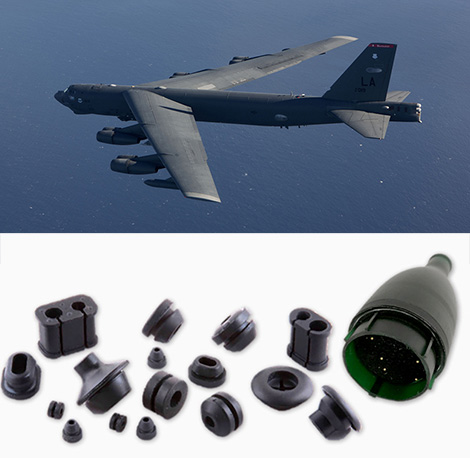
US Air Force legacy aircraft, like the B-52 bomber, could be the beneficiary of the latest stage of research into 3D printing for maintenance
Aircraft maintenance and legacy parts is high on the agenda for the United States Air Force (USAF), so the announcement of 3D Systems‘ Figure 4 Production system being drafted into an Air Force-sponsored research program is big news for advancing the technology.
Overseen by America Makes, the US national additive manufacturing innovation institute, and led by the University of Dayton Research Institute (UDRI), the initiative is bringing together 3D printing and aerospace manufacturing leaders, including 3D Systems, Lockheed Martin, Orbital ATK and Northrop Grumman.
The USAF will explore how the Figure 4 Production system can be used to reproduce aircraft components for decades old planes that may no longer have reliable sources of replacement parts – the the goal to rapidly deliver replacement parts ‘just-in-time’ without minimum order quantities – eliminating the need for parts warehousing and reducing time of aircraft on ground.
The move is part of multi-year USAF program, known as Maturation of Advanced Manufacturing for Low-cost Sustainment” (MAMLS – not to be confused with MAMILs), which is advancing to Phase III.
3D Systems’ technology has been featured in prior MAMLS phases, but this new project marks the first time the USAF will deploy what it calls Digital Light Processing (DLP) technology to supply low criticality components, including electrical connectors, knobs, elastomeric grommets, and spacers for legacy sustainment equipment.
According to America Makes, legacy aircraft used by the USAF require parts that may be out-of-production due to manufacturing obsolescence, costs to create, low-quantity requirements, poor documentation, or other availability-related challenges.
“Additive manufacturing is the perfect lean solution because it avoids the need for time-consuming and costly tooling,” said 3D Systems co-founder and CTO Chuck Hull.
“We are pleased to support the Air Force in its effort to reduce production costs and delivery times through Figure 4, our novel additive manufacturing technology. We look forward to our continued collaboration with UDRI and other partners – helping expand their arsenal of Figure 4 applications.”






